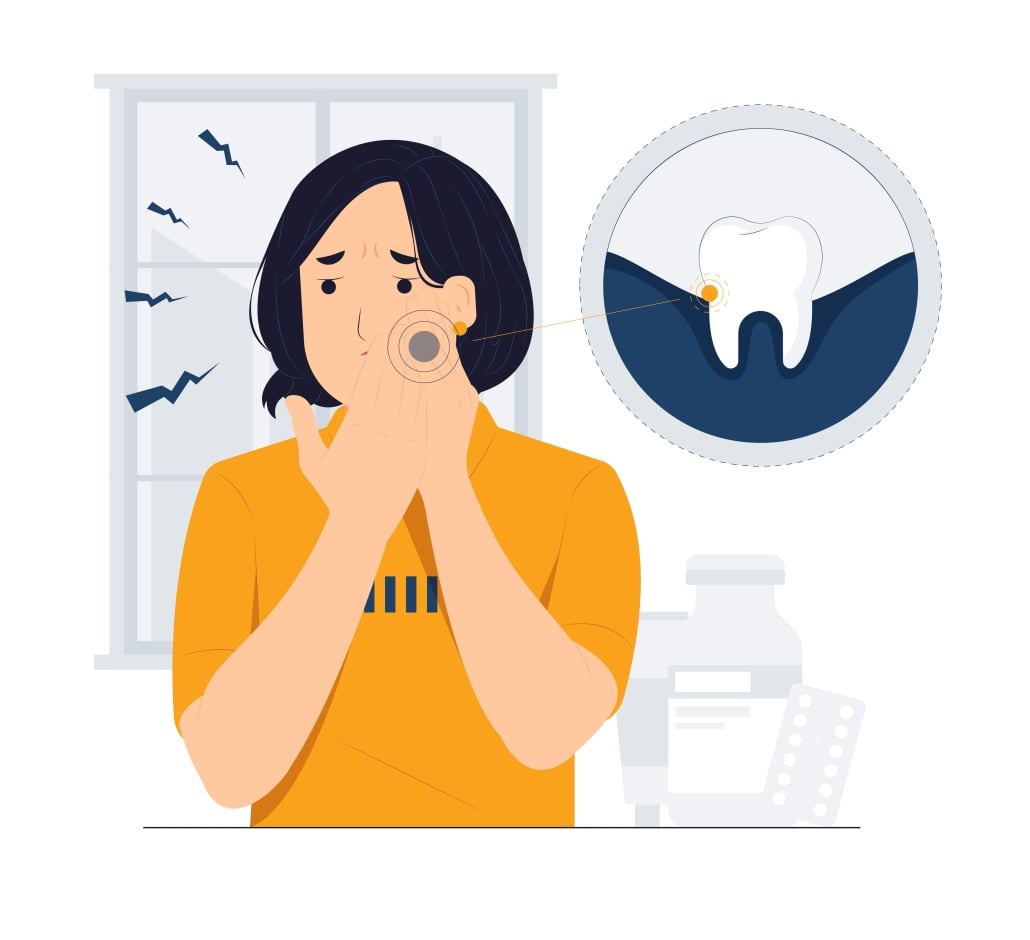Tooth Sensitivity Treatment and Prevention
Welcome to our blog guide on tooth sensitivity treatment and prevention. Tooth sensitivity, also known as dentin hypersensitivity, is a common dental issue affecting millions worldwide.It can cause discomfort and pain when eating hot, cold, sweet or sour foods and drinks or breathing cold air. This sensitivity occurs when the underlying dentin, which contains tiny nerve endings, is exposed to various factors. Fortunately, there are a number of strategies to reduce tooth sensitivity and improve oral comfort. In this comprehensive guide, we explore the causes of tooth sensitivity and provide a detailed overview of effective treatments and preventative measures.
Understanding the causes of tooth sensitivity
Before diving into treatment options, it’s important to understand why tooth sensitivity occurs. Several factors can contribute to the development of sensitive teeth:
Enamel Erosion: Enamel is the protective outer layer of your teeth. It can wear down over time from acidic foods and drinks, brushing too hard, or acid reflux. As the enamel erodes, it exposes the dentin underneath, leading to sensitivity.
Gum recession: Receding gums can expose sensitive tooth roots. Gum recession is often the result of gum disease, aggressive brushing, or aging.
Tooth decay: Cavities can lead to sensitivity as they progress into the dentin layer of the tooth.
Bruxism (teeth grinding): Grinding the teeth can wear down the enamel, making the teeth more sensitive. It can be caused by stress or misalignment of the teeth.
Cracked or chipped teeth: Injury or trauma to the teeth can cause cracks or chips, exposing the dentin and causing sensitivity.
Teeth whitening products: Some teeth whitening products, especially those with high concentrations of hydrogen peroxide, can temporarily increase sensitivity.
Acidic foods and drinks: Frequent consumption of acidic foods and drinks can erode enamel and contribute to sensitivity.

Effective treatment of tooth sensitivity
Now that we’ve explored the causes of tooth sensitivity, let’s dive into the various treatments available to relieve it:
Desensitizing toothpaste: Specialized toothpaste designed for sensitive teeth can help reduce discomfort. These toothpastes contain ingredients like potassium nitrate or strontium chloride that block pain signals to the nerves in the teeth.
Fluoride gel or rinse: A fluoride treatment provided by your dentist can strengthen enamel and reduce sensitivity.
Dental bonding: Dentists can apply a tooth-colored resin to cover the exposed dentin and protect it from external stimuli. This procedure is known as dental bonding.
Dental Sealants: Sealants are thin protective coatings that can be applied to teeth to protect them from sensitivity triggers.
In-Office Desensitizing Treatments: Dentists can provide in-office treatments such as fluoride varnish or laser therapy to quickly reduce tooth sensitivity.
Gum surgery: In cases of severe gum recession, your dentist may recommend gum surgery. This procedure involves taking tissue from another part of the mouth and grafting it onto the exposed tooth roots.
Root Canal Therapy: If the sensitivity is due to extensive tooth decay or a damaged nerve, a root canal may be necessary to relieve the pain.
Orthodontic treatment: If misaligned teeth or a faulty occlusion are contributing to the sensitivity, orthodontic treatment can help by realigning the teeth.
Custom mouth guards: For individuals with bruxism, custom mouth guards can prevent teeth grinding and reduce sensitivity.
Preventive measures for tooth sensitivity
While treatment can provide relief, prevention of tooth sensitivity is just as important. Here are some precautions to consider:
Maintain good oral hygiene: Brush your teeth gently with a soft-bristled toothbrush and fluoride toothpaste twice a day. Floss daily to remove food debris and plaque from between your teeth.
Use a soft toothbrush: Do not use a toothbrush with hard bristles as it can damage the enamel and gums. For gentler cleaning, choose a brush with soft bristles.
Limit acidic foods and drinks: Reduce your consumption of acidic foods and drinks such as soda, citrus fruits and vinegar sauces.
Avoid grinding your teeth: If you grind your teeth, talk to your dentist about a special mouth guard to protect your teeth while you sleep.
Regular dental checkups: See your dentist for regular checkups and cleanings. Early detection of dental problems can prevent them from progressing into sensitivity.
Practice proper brushing technique: Brush with gentle, circular motions rather than aggressive back-and-forth scrubbing. This helps prevent enamel erosion.
Choose a low-abrasive toothpaste: Some brands of toothpaste are less abrasive than others. Consult your dentist to choose a toothpaste that suits your needs.
Manage acid reflux: If you have acid reflux, work with your healthcare provider to manage the condition, as stomach acid can contribute to enamel erosion.
Limit whitening products: Use teeth whitening products sparingly and follow directions carefully to avoid over-exposure to whitening agents.
Adjust your diet: Include foods rich in calcium and phosphorus in your diet, such as dairy products, leafy greens, and lean meats, to promote healthy tooth enamel.
Conclusion
Tooth sensitivity can significantly affect your quality of life, but it is a treatable condition. Understanding the causes and available treatments is the first step to finding relief. Whether you opt for numbing toothpaste, dental procedures, or preventative measures, working closely with your dentist is essential to tailoring a treatment plan that meets your specific needs. By taking proactive steps to address tooth sensitivity, you can regain oral comfort and enjoy a pain-free smile for years to come.



Leave a Reply
Want to join the discussion?Feel free to contribute!